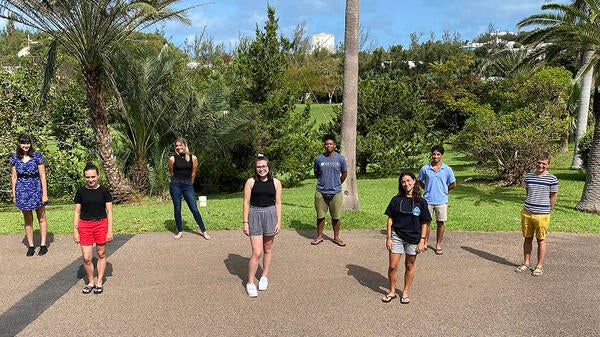The ongoing COVID-19 pandemic cancelled many in-person education experiences worldwide in 2020, but last fall the National Science Foundation (NSF) Research Experiences for Undergraduates (REU) program at BIOS proceeded with strict quarantine measures and social distancing procedures in place, in accordance with Bermuda Government guidelines.
Catching up With a Colleague
February 05, 2021

In 1989, BIOS was still known as the Bermuda Biological Station for Research and its logo was an angelfish surrounded by a concentric ring of nautical rope. Back then, the Institute’s research vessel was Weatherbird II, acquired that year to support the increased use associated with the open-ocean research and equipment testing for which BIOS became known. And when biologist and educator Dr. Edward F. MacNichol, Jr. made a generous gift in memory of his parents, the MacNichol Fund was established, allowing the Institute to recruit talented young scientists to establish their own independent research programs. The first hire was Fred Lipschultz, then a postdoctoral student and biological oceanographer from Harvard University, who arrived in September 1989.
BIOS Intern Featured in NSF Scientist Selfie Series
February 07, 2021
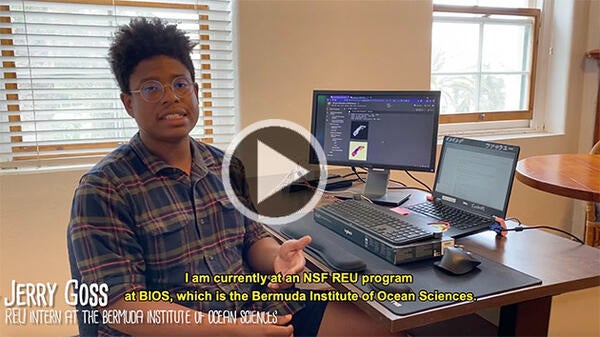
The latest Scientist Selfie video, promoted by the National Science Foundation (NSF), features BIOS Research Experiences for Undergraduates (REU) intern Jerry Goss and his studies of plankton with BIOS ecologist Leocadio Blanco-Bercial.
Understanding Data, One “Byte” at a Time
March 05, 2021
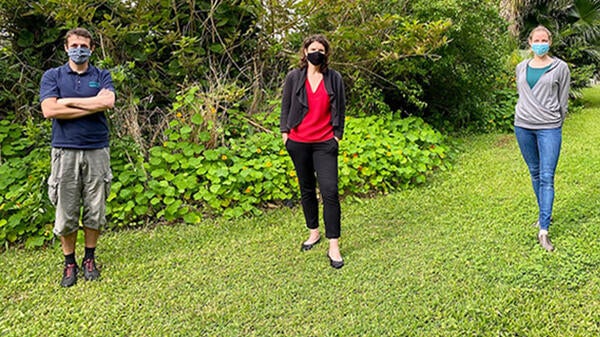
Every time science researchers conduct an experiment at sea or make measurements in a lab, they gather tens of thousands of data points. Collectively, these tell a story of the places, organisms, and communities scientists study and the research questions they are addressing.
When Saturdays Became Learning Days
January 27, 2021
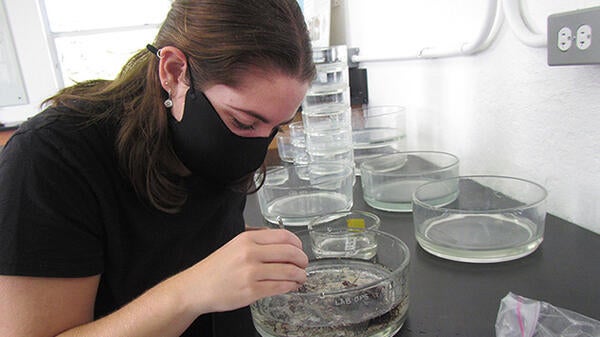
When the ongoing pandemic scuttled Maya Leighton’s plans this fall to attend a university overseas, she instead enrolled for a year at Bermuda College. There, a professor noted Leighton’s commitment to marine sciences and suggested a unique opportunity. How about spending Saturdays at BIOS, learning about coral reefs, marine microplastics, plankton, and mangrove restoration on island?
How about Studying this Summer in Bermuda?
April 13, 2017
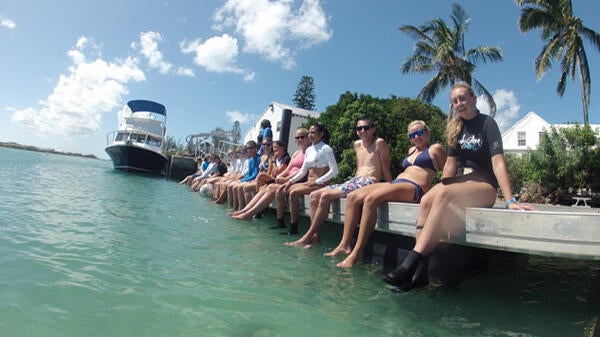
This summer, BIOS will offer courses in Modern Observational Oceanography, Coral Reef Ecology and a new course: Coral Reef Optics. Each course offers a unique opportunity for students to study abroad and conduct fieldwork in Bermuda’s marine ecosystems. Applications are due April 14. For more information, including how to apply, see the course flyer or visit /education/summer-courses
Five Years, Five Students—and a Fine Paper to Show
March 13, 2017
Since its beginning in 1903 as a field station for students and scientists at Harvard University and New York University, BIOS has hosted hundreds of students from colleges and universities around the world. Over the years, students conducting research at BIOS have used their experiences as springboards for acceptance into graduate degree programs, a variety of technical and research positions (both at BIOS and abroad), and—frequently—a scientific publication in a peer-reviewed journal.
Calling All Volunteers
March 13, 2017
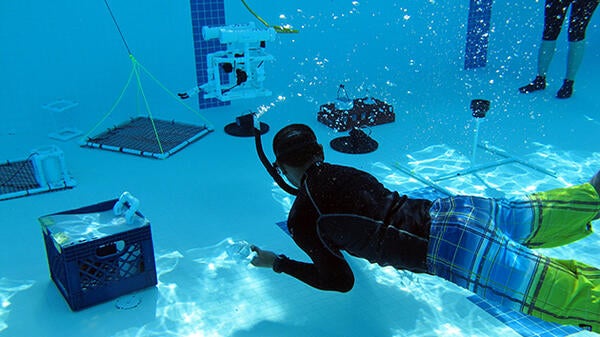
Like to snorkel? Interested in supporting emerging marine engineers? Several dozen volunteers from BIOS and the Bermuda community are needed to assist on Saturday, April 22, as 27 teams of middle school students test their mission-tasked Remotely Operated Vehicles (ROVs) during the annual island-wide robotics challenge.
Celebrating 25 Years of Undergraduate Research Success at BIOS
February 12, 2017
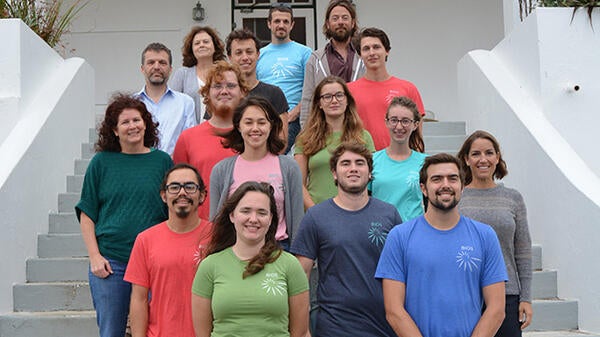
In 1991, a group of undergraduate students arrived in Bermuda to spend a semester with BIOS faculty and staff who mentored their independent marine science research projects. The program, known as Research Experiences for Undergraduates, or REU, was designed to provide a semester-long, rigorous research experience enhanced by field trips on land and at sea. Since then, nearly 200 university students have participated on a variety of projects, with themes ranging from climate change to coral reef ecology. Their work culminates in a final, formal presentation to BIOS faculty and staff.
Living, Breathing, and Learning Science
February 12, 2017
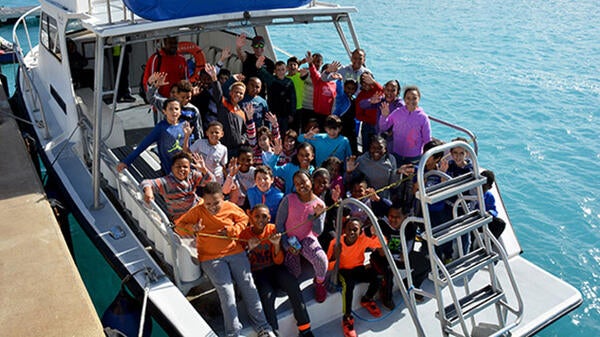
Last month a group of 39 P6 (primary school level 6, or grade 5 in the U.S. school system) students from Harrington Sound Primary School spent three days and two nights at the Bermuda Institute of Ocean Sciences (BIOS), where they learned about the local marine environment and potential career paths in ocean science research, technology, and education.
